What We've Lost
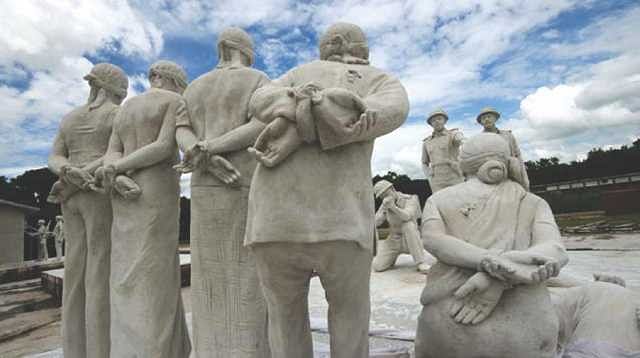
December 14, 1971. Mere days before our independence, Pakistani troops systematically rounded up, tortured and killed most of the brightest minds in the yet to be free East Pakistan. This final act of atrocity was carried out in the hopes of destroying the future of the country, to maim the nation permanently. Contrary to the Pakistani regime's expectations, Bangladesh survived this blow, and it continues to survive several other attacks on its existence. But the scars remain and so does the question: Would things be different had we not lost the very people who seeded the idea of nationalism in every Bengali heart?
How aware are we about their respective contributions that made them special targets of the Pakistani regime? Each of the martyred intellectuals was instrumental in the fight for liberation. However, not many of us are aware that each one of them was remarkably talented in their own fields. It wasn't chance that brought them to the attention of the Pakistani dictators; they were chosen because they were the cream of the crop, representing the educated, cultured, erudite section of a subjugated population.
Munier Chowdhury, for instance, is mostly remembered as one of the most outspoken critics of the Pakistani regime, but not many people know that Chowdhury redesigned and modernised the keyboard of the Bangla typewriter in collaboration with Remington typewriters of the then East Germany in 1965. Over the years, his creation, the 'Munier Optima' keyboard, paved the way for further steps in improving the Bangla keyboard.
Always a revolutionary, Chowdhury was jailed for two years for his involvement in the Language Movement in 1952. Interestingly, even though he was allowed to continue his education at Dhaka University, Chowdhury was expelled from Salimullah Hall, his residential dorm, because of his involvement in leftist politics. This led to a new era in Chowdhury's life, as he explored his literary talents, initially by writing plays for the Dhaka Radio to pay for his education, and later by penning some of the most influential plays in the country's history. Munier Chowdhury is deservedly called the father of modern drama in Bangladesh. His play Kobor was performed by prisoners during his spell in jail to commemorate the first anniversary of the Language Movement on February 21. He continued to write even after being freed from prison, some of his most notable works being Roktakto Prantor, Chithi and Polashi Barrack O Onyanno.
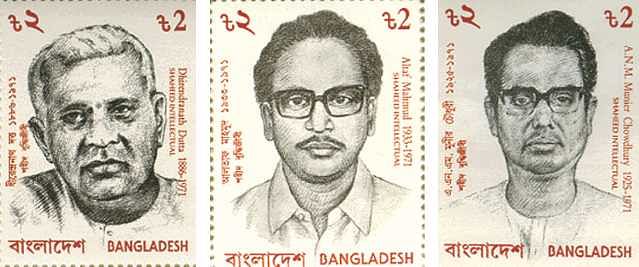
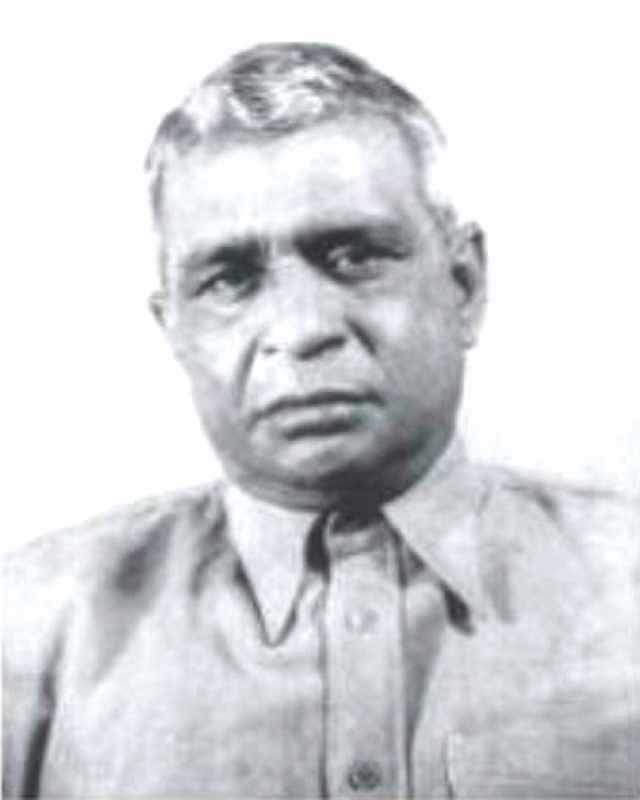
“I became a novelist because Ayub Khan sent me to jail.” Another martyred intellectual Shahidullah Kaiser famously said this when asked about his career as a writer. Kaiser started his career as a journalist, joining the daily Ittefaq in the 1949, before playing an important role in the Language Movement. Like many others, Kaiser too was imprisoned by the Pakistani regime for his role in the language movement and in the next 10 years, he spent a total of eight years in prison. As Kaiser himself stated, his writing career truly began behind the bars, as it is there that he penned a number of remarkable plays, short stories and novels. His novel Sangsaptak is considered to be one of the most significant fictions of Bangladesh's literary canon. Almost all his works including Sareng Bou, Rajbondi'r Rojnamcha, Timir Belay, Naam Nei and Jadu-i Halwa were written in confinement. The only book that he wrote after being freed from prison was the unfinished novel Kobey Pohabe Bibhabori, which was an account of the horrors inflicted by Pakistani forces. He would write it during the night and bury the copies in the courtyard of his residence before dawn broke, digging it out again when night fell. Unfortunately, he was killed before finishing the four-part novel.
On February 23, 1948, Dhirendranath Datta, another martyr of ’71, made a compelling speech calling for Bengali to be made into one of the official languages of Pakistan at the Pakistan Constituent Assembly in Karachi. It was the first formal call for Bengali to be made into a state language and this demand led to the Language Movement of 1952. Datta's demand was met with derision from the Pakistan government, and he was targeted as a threat to the regime. Datta, a lawyer by profession, was a lone ranger, whose plea was not supported by the majority of Bengali leaders at that time but he could foresee that the future of the Bengali people would remain uncertain and under the regime's control until there was a demand for their language to be officially acknowledged was met.
The country has all but forgotten the contributions of Dr Mohammad Fazle Rabbee. A renowned cardiologist and medical researcher, Rabbee could have spent his life in comfort and luxury but he decided to forgo more fruitful opportunities by working for his people, trying to secure free medical benefits for all and always walking on the path of humanity. As a student of Dhaka Medical College, Rabbee completed his MBBS in 1955, receiving a gold medal for achieving the highest grades in all of Pakistan. He became the Registrar of Medicine at the 'ripe old' age of 27 and earned a couple of MRCP degrees in cardiology and internal medicine within two years. After completing his graduation, Rabbee worked at the Hammersmith Hospital and the Middlesex Hospital in London but left his flourishing career in favour of his country to which he returned in 1963. After returning home, Rabbee was more involved in promoting the idea of good medical care for free but instead of being lauded, he was imprisoned by the Pakistani army for his 'provocative speeches.' Rabbee didn't just limit his ideals to words, he acted on them. During the liberation war, Rabbee provided medical care, monetary support and shelter to freedom fighters and survivors of the war. His confidence in his cause can be best exemplified by his refusal to accept the Best Professor Award from the Pakistani government in protest of their treatment to East Pakistan and its people.
Apart from being a doctor, Rabbee was well known and respected for his research works, namely The Tropical Pulmonary Eosinophilia and A Case of Congenital Hyperbilirubinaemia. His works were published in the British Medical Journal and The Lancet, one of the world's oldest general medical journals.
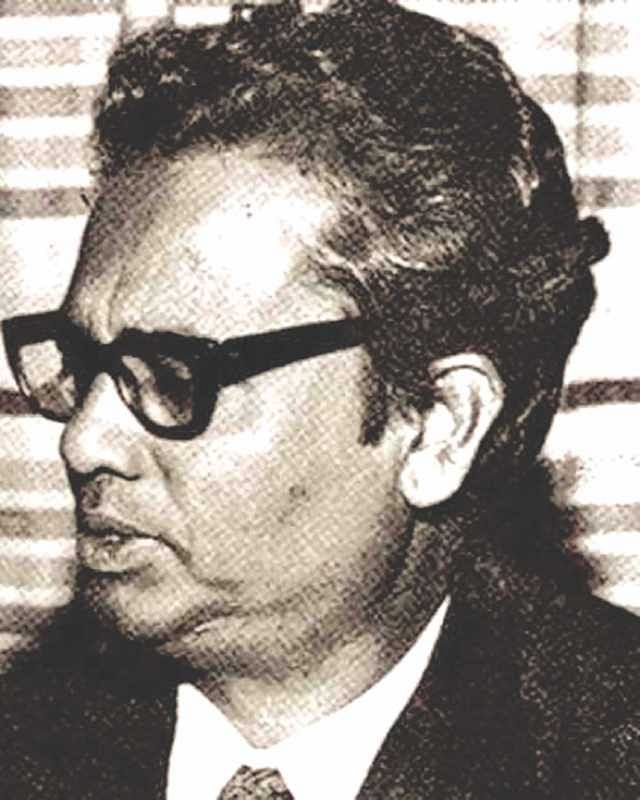
Even musicians were not spared in the Pakistani regime's targeted hunting of the country's intellectuals. Altaf Mahmud always attempted to reveal the atrocities of a violent administration through his tunes. Apart from being an active freedom fighter, Mahmud was also a gifted music composer. He was even invited to participate at the Vienna Peace Conference in 1956 but was unable to attend as his passport was confiscated by the Pakistani government. It was not just Mahmud's outspoken nature but also his inarguable talent that frightened an entire regime. How could they dare to underestimate a man who had the ability to move an entire nation to action just with a single song? Even today Mahmud's eternal composition Amar Bhaiyer Rokte Ragano has the ability to take us back to a struggle that brought us our much loved freedom. Apart from the revolutionary Jibon Theke Neya, Mahmud, a protégée of the music legend Ustad Abdul Kader Khan, composed music for 19 films, including Kaar Bou, Satyer Joy and Ami Manusher Bhai Spartacus.
Professor Govinda Chandra Dev was the living embodiment of philosopher Paul Kurtz's statement that philosopher should just make obscure references to the works of other philosophers but “descend into the concrete world of human practice and belief, sweat and toil like the rest of humanity.” He believed that philosophy should have a connection with reality instead of dwelling in abstractions. Despite an impoverished childhood spent in loving care of Christian missionaries, Dev proved his mettle when he earned the top position in his masters degree in philosophy from Calcutta University. He introduced the idea of synthetic philosophy, which stated that it was possible to believe in the ultimate perfection of humanity on the basis of advanced scientific conceptions, in the subcontinent, focusing on its practical application. Dev's popularity transcended borders; he taught at the Wilkes-Barre College in Pennsylvania in USA as a visiting professor and his popularity became such that some of his students founded the Govinda Dev Foundation for World Brotherhood for promoting his philosophy of humanism. Some of his notable books include, Amar Jibandarshan, The Philosophy of Vivekananda and the Future of Man and Buddha: The Humanist.' “Peace is indivisible,” he had once said and these words could not have more value than in today's world of illogical wars and individual national interests.
We Can't Forget You
According to the Bangladeshi encyclopedia, Banglapedia, around 991 academics, 13 journalists, 49 physicians, 42 lawyers and 16 other people from various cultural and intellectual sections of the country were savagely killed in the 1971 carnage of the intellectuals. We can't ignore the contributions of other martyred intellectuals, be it Jyotirmoy Guhathakurta, Ghiasuddin Ahmed, Anwar Pasha and Dr Serajul Haque Khan, Humayun Kabir, Jogesh Chandra Ghose or numerous others who impacted the birth of a nation and could have contributed to the development of Bangladesh had they lived.Unfortunately, due to a lack of space we could not list out the significant contributions each of them made in their respective fields. These people were not mere intellectuals, they were the backbone of our country. They were the brilliant minds who conceived of an independent nation, fought for it but could not live to see their country freed from the clutches of an oppressive regime. Here's to the visionaries who dreamt and struggled for a free country. We owe you our respect, our reverence and our freedom.

 For all latest news, follow The Daily Star's Google News channel.
For all latest news, follow The Daily Star's Google News channel. 


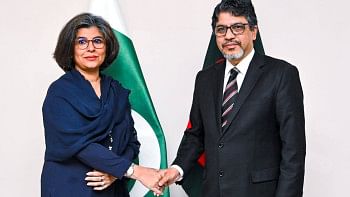
Comments